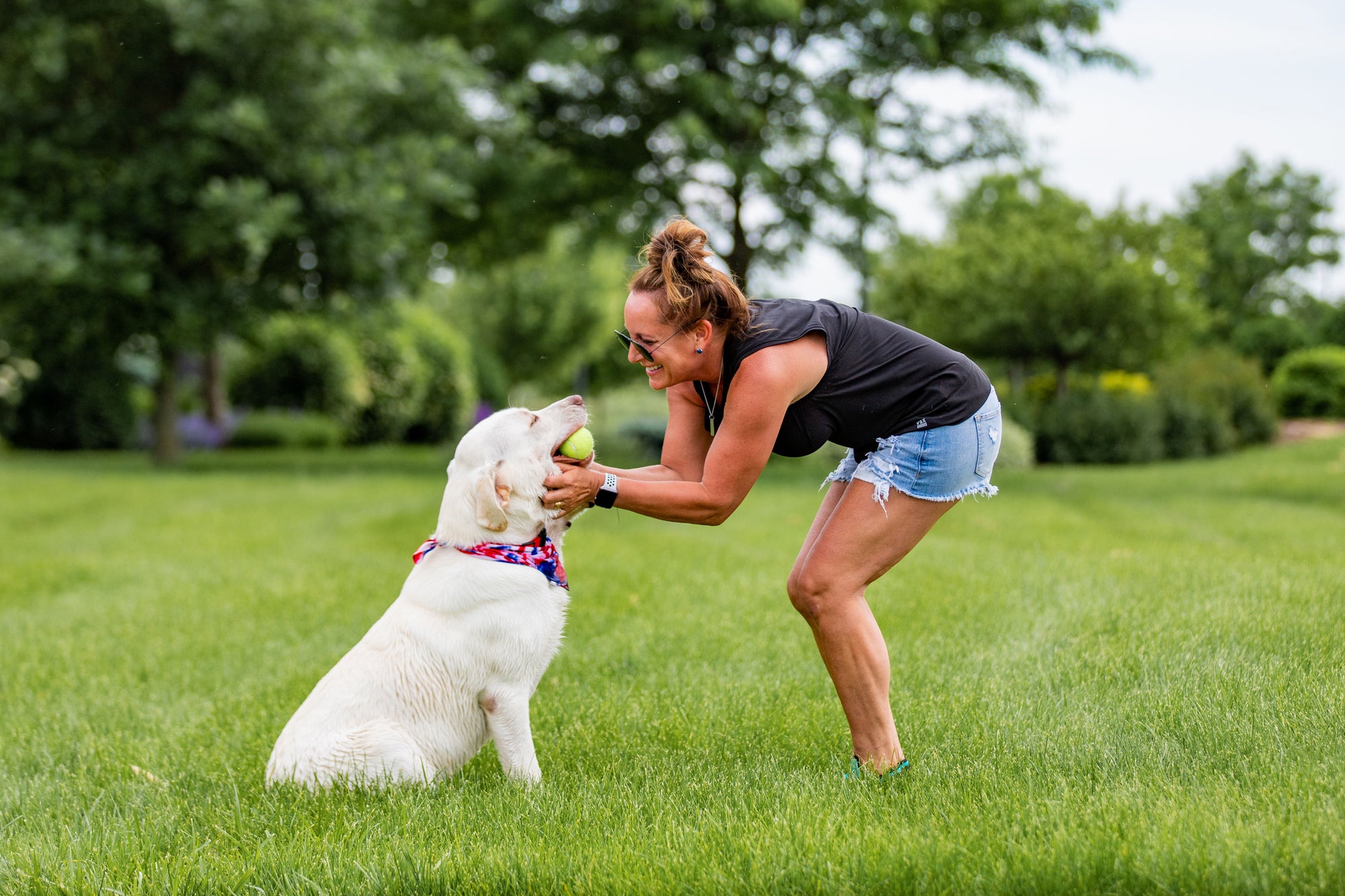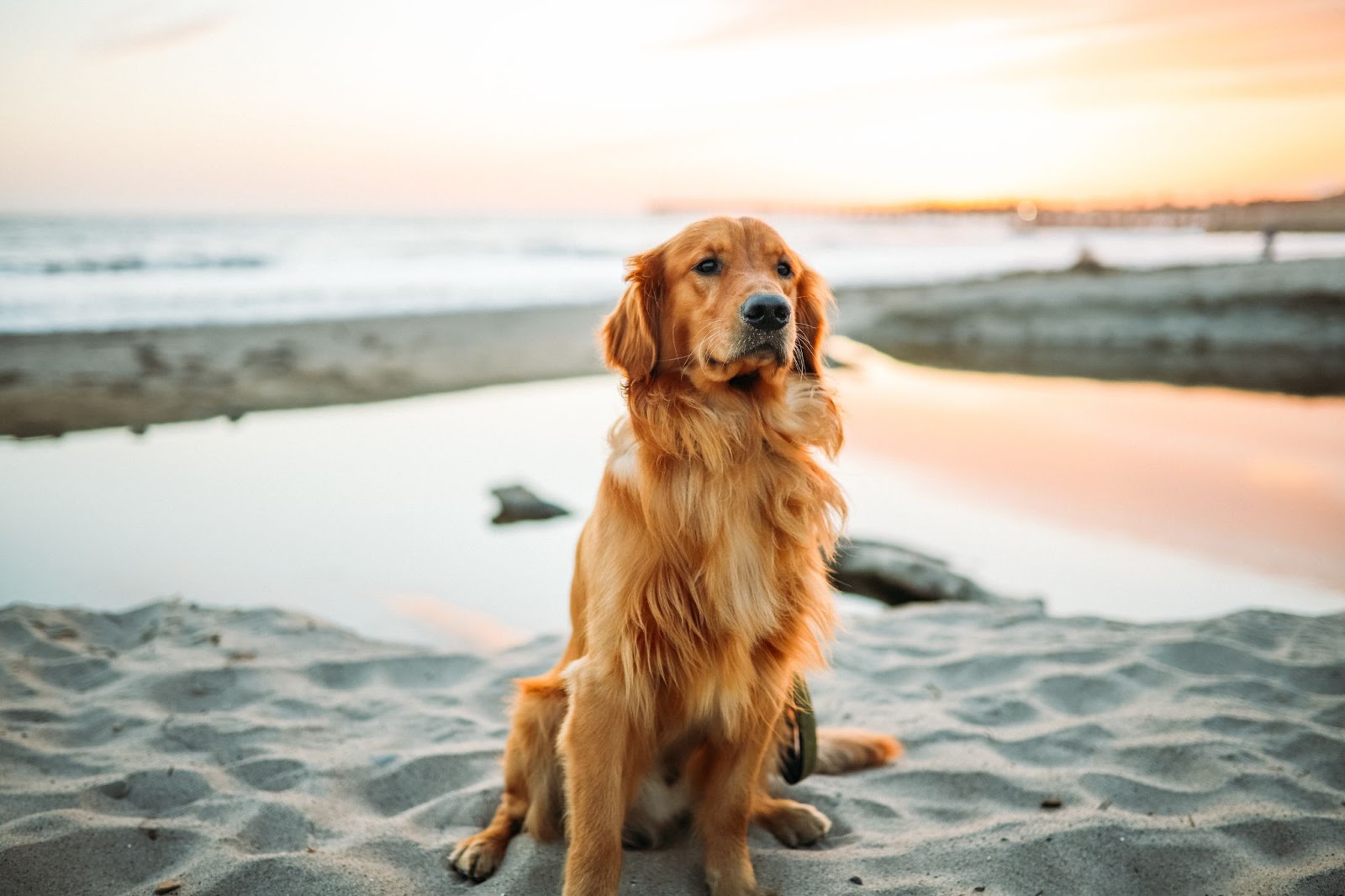We all know that dogs tend to eat strange things… they don’t have the same refined sense of taste that we do, and are definitely not going to be found eating a three course meal. Most of the time, keeping your dog from snacking on unusual items means behavior modification.
However, in some cases, the things that your dog wants to eat can clue you into larger issues that may be occurring. For instance, why do dogs eat grass? The answer may surprise you! WINPRO Pet has more.
Your Dog Eating Grass Is Not Unusual
If you’re feeling embarrassed or worried about telling your veterinarian about your dog’s grass eating habits, don’t be! This is actually a very common issue that many pet owners contend with. When your dog eats anything that is considered a “non food” item, like grass or dirt, it is known medically as “pica.”
Pica is actually categorized as an eating disorder, and is something that humans can experience, too (especially when pregnant)! Pica, in general, can be complicated to diagnose because it can stem from either a medical or a behavioral issue (or both). To understand it more, let’s look more closely at both!
What Does Eating Grass Do For Your Dog Physically?
So, why do dogs eat grass? One of the most well-known theories is that dogs eat grass to help settle down their stomachs when they’re feeling nauseated. This is often cited by people who have found their dogs wolfing down grass in the backyard, only to rush into the house and vomit moments later.
While that conclusion makes sense in those situations, research has actually shown that less than 25% of dogs will vomit after they eat grass. And less than 10% of those dogs show any signs of illness before eating grass.
Although rare, dogs who eat grass may be suffering from a nutritional deficiency. However, this is fairly unlikely, as the vast majority of dog foods on the market are created to be as nutritionally balanced as possible. When it comes to dietary supplementation, though, there may be an unconscious drive for dogs to eat grass. Grass is considered “roughage,” which contains a good amount of fiber. Fiber is necessary to help dogs both digest their food and turn it into stool, and is also essential in keeping bowel movements regular.
If your dog is showing stomach discomfort either before or after eating grass, though, it could be due to a variety of different GI issues. In addition to a trip to your veterinarian when it happens, gut supportive supplements may be helpful to maintain your dog’s gut health.
We don’t often think about it, our dogs aren’t that far removed from their wild ancestors. While they have evolved, thanks to their domestication, they all still have that canine instinct in the back of their brain. Dogs in the wild were driven to eat grass for the same physical reason that our dogs are.
What Does Eating Grass Do For Your Dog Mentally?
So, why do dogs eat grass if it doesn’t really fulfill a physical need? The answer to that is that it is more likely that it fulfills a mental or psychological need.
Think about life from your dog’s perspective. While you get to go out to work, have dinner with friends, see a movie, etc. your dog stays at home by themselves most of the day. Their worlds really do revolve around their owners, which can get fairly tedious when things remain the same day after day.
If your dog has the ability to spend time outdoors, he or she may simply eat grass as a way to break up the monotony. Dogs with separation anxiety may also turn to eating grass as a way to help reduce their anxiety, much like some people chew their nails.
It’s also possible that your dog may be eating grass in front of you as a way of gaining your attention. If you have a tendency to yell at your dog to get them to stop, they may have started to look to that interaction as a way of getting you to pay attention to them (after all, negative attention is still attention).
Or your dog could just like it! We never said that all canine behavior makes sense so, in some cases, the answer to “why do dogs eat grass” really is that it may just be a quirk.
What Can You Do When Your Dog Eats Grass?
Whether you think your dog is eating grass for physical or mental reasons, you are probably ready to nip it in the bud. Although it likely won’t hurt your dog to actually eat the grass, it’s the other things that can be on the grass that can be an issue (like pesticides, parasites, etc.).
First, and foremost, it’s important to rule out any potential physical causes that can lead your dog to eat grass. If your dog occasionally chows down on the yard, even if it is followed by vomiting, that’s usually not cause for concern.
However, if your dog has been doing it more and more frequently, and especially if it is paired with weight loss, a decrease in his or her appetite, diarrhea, lip licking, lethargy, and/or blood in their stool, don’t write it off. Head to your vet as soon as possible for testing, diagnosis, and treatment.
If your dog is eating grass more for mental reasons than physical, you’ll have to approach things with behavioral modification in mind. Try to minimize the time that your dog spends outside by themselves, and focus on spending more time and attention on them.
Walking your dog more often could help, as can providing them with more chew toys to distract them. When your dog tries to grab a few blades, gently redirect without yelling or talking loudly. Once their attention is focused on you, reward them with either a healthy treat or verbal praise.
One Final Thought
As we discussed, while the grass itself is unlikely to hurt your dog, there are other things that come with it that can. In addition to watching for pesticides and potential parasites, make sure that your dog doesn’t ingest any of the plants that can be known to be toxic or poisonous.
The ASPCA is a great resource if you’re wondering what, if anything, in your yard may be dangerous to your dog. You may be surprised by some of the benign things that can become a larger problem if your dog is allowed to ingest them. It’s just one more reason to try to curb your dog’s grass eating problem before it becomes a harder to break habit.
In Conclusion
Why do dogs eat grass? The answer requires a little bit of detective work. Whether your dog is eating grass because they crave it physically, or they are bored or eating it to help relieve their stress or anxiety, ruling out a potential health issue is essential.
If you want to learn about more ways to support your dog, so that you can give back even a small portion of the support they give to you, the WINPRO Pet team is here to help.
Sources:
Behavioral Problems of Dogs - Behavior | Merck Veterinary Manual (merckvetmanual.com)




